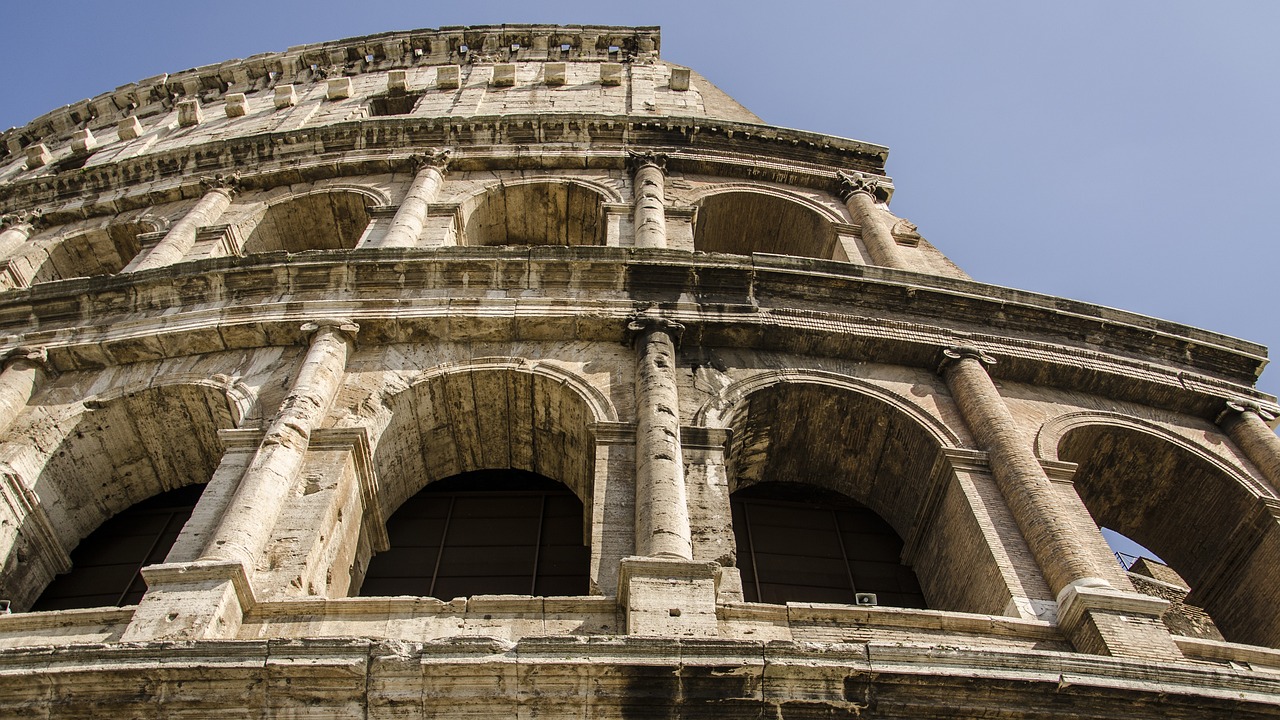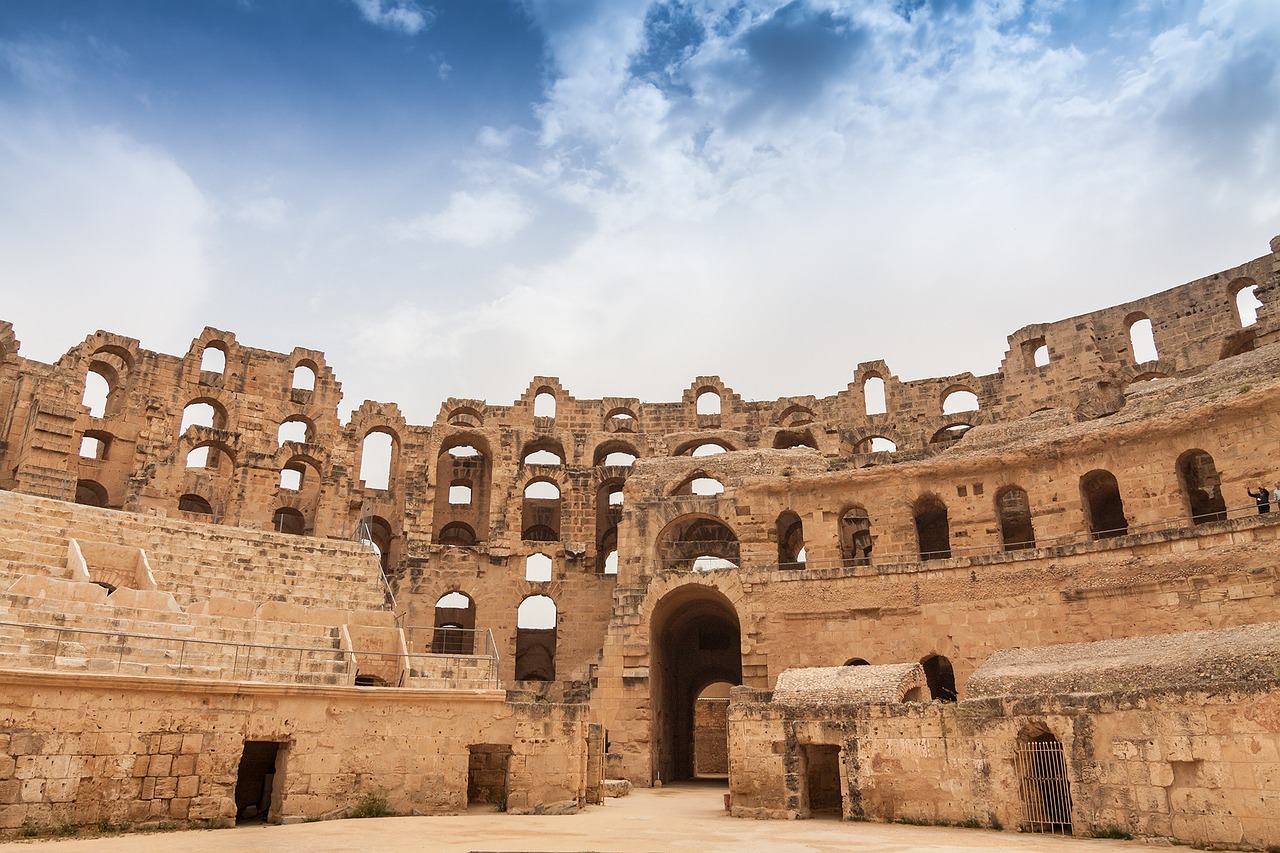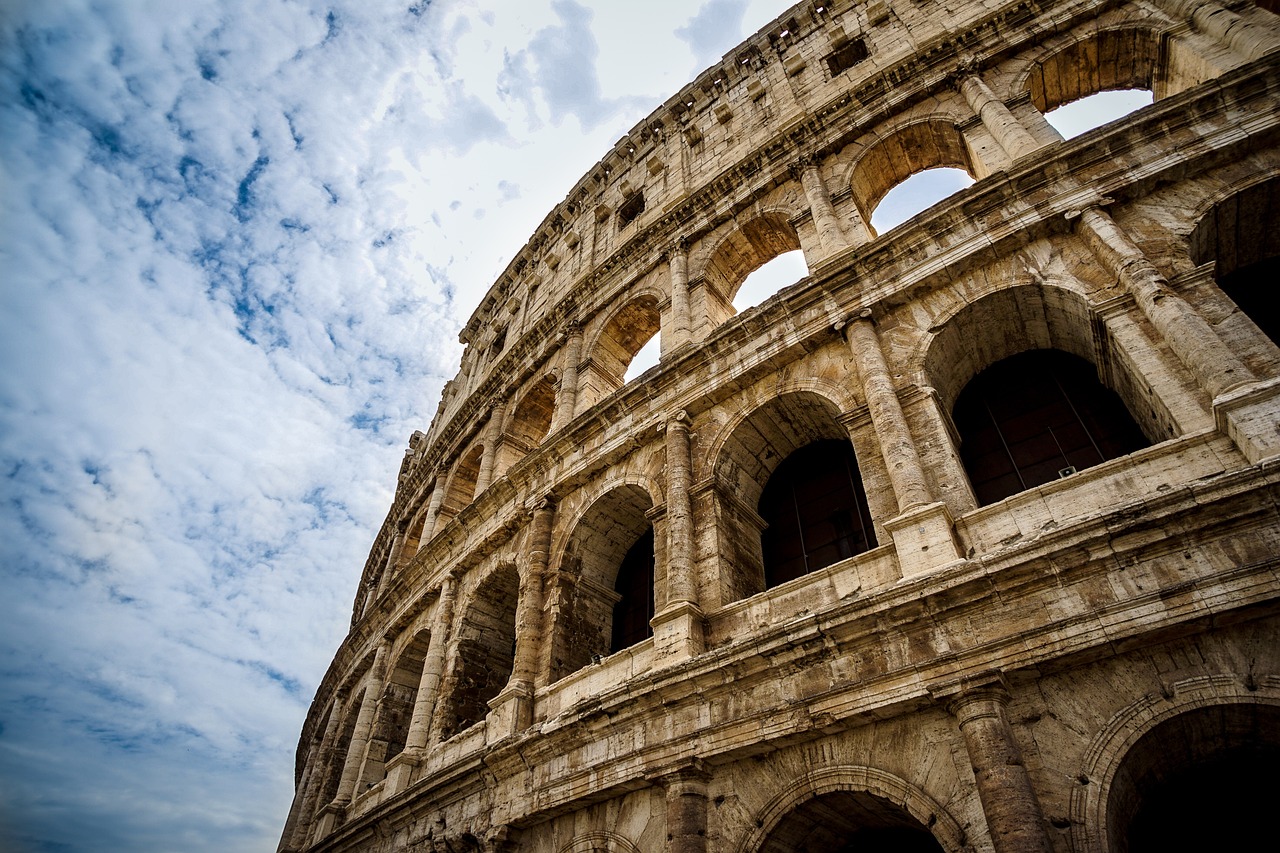The Legacy of Ancient Rome - Law and Governance
When we delve into the annals of history, the legacy of Ancient Rome looms large, casting a profound influence on the foundations of law and governance in modern societies. The enduring impact of Ancient Roman legal principles and governance structures continues to shape our concepts of justice, democracy, and administration, resonating across time and borders.

Ancient Roman Legal System
Exploring the enduring impact of Ancient Roman legal principles and governance structures on modern societies worldwide, shaping concepts of justice, democracy, and administration.
The Ancient Roman legal system stands as a cornerstone in the development of legal frameworks globally. Rooted in the Twelve Tables, which were the earliest attempt to create a code of law in Rome, this system laid the foundation for legal principles we see today. Precedents set by judgements in past cases played a crucial role in shaping future decisions, establishing a sense of consistency and predictability. Moreover, magistrates, who acted as judges, were instrumental in adjudicating disputes and upholding the rule of law.

Roman Senate and Political Institutions
The Roman Senate stood as a cornerstone of governance in the mighty Roman Empire, wielding significant power and influence over political decisions. Comprised of esteemed senators representing the aristocratic elite, the Senate served as an advisory body to the consuls, magistrates, and emperors, shaping the direction of Roman policies and laws. Through debates and deliberations, the senators played a pivotal role in the formulation of legislation and the administration of the vast territories under Roman rule.
Within the Senate, the consuls held the highest political office, serving as chief executives and military commanders. Elected annually, the consuls presided over Senate meetings, proposed laws, and led military campaigns to expand and defend the empire. Alongside the consuls, other political offices such as praetors, censors, and tribunes contributed to the governance and stability of Roman society, each with specific responsibilities and jurisdictions.
Moreover, the Senate's authority extended beyond Rome itself, overseeing the appointment of provincial governors and ensuring the adherence to Roman laws and policies in the far reaches of the empire. This centralized governance structure facilitated the efficient administration of diverse territories, fostering economic prosperity and cultural exchange within the boundaries of the Roman Empire.
As the heartbeat of Roman political life, the Senate symbolized the collective wisdom and experience of Roman statesmen, guiding the empire through times of war, conquest, and peace. Its legacy continues to resonate in modern political institutions, reflecting the enduring influence of Roman governance principles on the foundations of democratic governance and the rule of law.

Senatorial Class and Influence
The Senatorial Class in Ancient Rome was a prestigious social rank comprising wealthy and influential individuals who held significant power in the political landscape of the Roman Republic. Members of the Senatorial Class, known as senators, played crucial roles in shaping policies, passing laws, and overseeing the administration of the state. Their influence extended beyond the legislative sphere, encompassing economic affairs, military command, and social status.
Senators were typically drawn from established aristocratic families and held lifelong membership in the Senate, ensuring continuity and stability in governance. Their status was marked by distinctive privileges, including the right to wear a toga with a purple stripe and to sit in the front rows at public events, symbolizing their elevated position in Roman society. The Senatorial Class was a close-knit elite group that maintained its authority through wealth, connections, and adherence to traditional norms.
Within the Senate, senators wielded considerable influence through debates, speeches, and alliances with fellow members. Their decisions could sway public opinion, shape legislation, and determine the course of military campaigns. The Senatorial Class also had a significant role in the selection of magistrates, including consuls and praetors, who governed Rome and its territories.
Despite their power, senators were not immune to political rivalries, scandals, and shifting alliances within the Senate. Competing interests often led to fierce debates, backroom negotiations, and occasional conflicts that reflected the complex dynamics of Roman politics. The influence of the Senatorial Class was not absolute, as other social groups, such as the equestrians and plebeians, also vied for political power and representation.
Overall, the Senatorial Class in Ancient Rome left a lasting legacy in the realms of governance, law, and culture, shaping the foundations of Western civilization and influencing subsequent political systems. Their influence reverberates through the ages, reminding us of the enduring impact of elite classes on societal structures and power dynamics.

Imperial Administration and Bureaucracy
The Imperial Administration of Ancient Rome was a complex system that played a crucial role in governing the vast territories of the Roman Empire. At the helm of this administration were the emperors, who held supreme authority over military, political, and administrative matters. Surrounding the emperor was a network of officials, bureaucrats, and governors responsible for managing the day-to-day affairs of the empire.
One of the key aspects of Roman imperial administration was the division of the empire into provinces, each overseen by a governor appointed by the emperor. These governors, known as proconsuls or propraetors, were tasked with maintaining order, collecting taxes, and upholding Roman law within their respective territories. This system of provincial governance helped ensure the stability and cohesion of the empire.
Furthermore, the Roman bureaucracy played a vital role in supporting the administrative functions of the empire. Bureaucrats, known as apparitores, were responsible for record-keeping, correspondence, and the execution of imperial decrees. Their meticulous work helped streamline communication and decision-making processes within the imperial government.
Additionally, the Roman taxation system was a fundamental component of imperial administration, providing the necessary revenue to fund the military, infrastructure projects, and public services. Taxes were collected at various levels, from provincial tributes to individual income taxes, contributing to the financial sustainability of the empire.
In terms of military administration, the Roman Empire maintained a powerful army that was crucial for expanding and defending its territories. Legions were stationed strategically across the empire, with military commanders reporting directly to the emperor. This military structure played a pivotal role in maintaining Roman dominance and security.
Overall, the Imperial Administration and Bureaucracy of Ancient Rome were integral to the efficient governance of the empire, ensuring order, stability, and the enforcement of Roman law throughout its vast territories.

Pax Romana and Legal Uniformity
During the reign of the Roman Empire, the concept of Pax Romana, or Roman Peace, played a crucial role in establishing legal uniformity throughout the vast territories under Roman control. This period of relative stability and minimal conflict, lasting approximately 200 years, allowed for the harmonization of legal practices and systems across diverse regions, fostering a sense of unity and coherence within the empire.
One of the key mechanisms through which the Pax Romana promoted legal uniformity was the dissemination of Roman laws and legal principles to the provinces. The establishment of consistent legal standards facilitated trade and commerce, as merchants and traders could rely on a common legal framework to resolve disputes and enforce contracts. This legal uniformity also facilitated communication and cultural exchange, as individuals traveling across the empire could expect a degree of legal predictability and consistency.
Moreover, the Pax Romana enabled the Roman authorities to maintain law and order more effectively, ensuring the protection of citizens and the enforcement of legal rights. The presence of Roman legions throughout the empire served as a deterrent against internal unrest and external threats, contributing to a climate of stability that supported the functioning of legal institutions and the administration of justice.
Within this context of legal uniformity, the Roman legal system continued to evolve and adapt to the changing needs of the empire. The magistrates and governors responsible for interpreting and enforcing the law played a crucial role in upholding legal standards and ensuring compliance with Roman legal principles. This emphasis on legal consistency and predictability laid the foundation for the enduring legacy of Roman law in shaping modern legal systems around the world.

Legacy of Roman Law in Modern Legal Systems
The legacy of Roman law in modern legal systems is profound and far-reaching, with its influence extending across continents and centuries. The principles established by the ancient Romans have laid the foundation for many aspects of contemporary legal frameworks, shaping the way justice is administered, laws are interpreted, and disputes are resolved.
One of the key contributions of Roman law to modern legal systems is the concept of civil law. Roman legal principles emphasized the importance of written laws that applied universally to all citizens, providing a framework for legal predictability and consistency. This approach to law has been adopted by many countries around the world, forming the basis of their legal systems.
Furthermore, the Roman tradition of jurisprudence has had a lasting impact on legal education and scholarship. The rigorous study of legal principles, case law, and legal reasoning practiced by Roman jurists has influenced the development of legal education in modern times, shaping the way lawyers are trained and how legal arguments are constructed.
In addition to civil law and jurisprudence, the legacy of Roman law can be seen in the codification of legal codes. The Roman tradition of compiling and organizing laws into comprehensive codes, such as the Twelve Tables and Justinian Code, has inspired the codification efforts of many modern legal systems. These legal codes provide a systematic and accessible way to understand and apply the law, promoting legal certainty and transparency.
Moreover, the principles of legal reasoning and precedent established by the Romans continue to influence judicial decision-making in contemporary legal systems. The practice of interpreting laws based on precedent and applying legal reasoning to resolve disputes is a hallmark of Roman legal tradition that remains relevant in modern courts.
Overall, the legacy of Roman law in modern legal systems is a testament to the enduring impact of ancient legal principles on the development of law and governance. By studying and understanding the foundations laid by the Romans, we can gain insights into the evolution of legal systems and appreciate the rich heritage that shapes the way justice is pursued and upheld in the present day.

Justinian Code and Roman Law Revival
The Justinian Code, also known as the Codex Justinianus, stands as a monumental achievement in the history of Roman law revival. Emperor Justinian I of the Byzantine Empire undertook the significant task of consolidating and organizing centuries of legal knowledge into a comprehensive legal code. This codification effort aimed to streamline and clarify the complex and often contradictory Roman legal system, providing a solid foundation for legal practice and administration.
Justinian's legal reforms not only preserved the essence of Roman law but also adapted it to meet the evolving needs of society. The Codex Justinianus encompassed a wide range of legal topics, including property rights, contracts, criminal law, and civil procedures. By standardizing legal principles and procedures, the Justinian Code ensured greater predictability and consistency in legal outcomes, fostering a sense of stability and fairness in the Byzantine legal system.
Moreover, the influence of the Justinian Code extended far beyond the borders of the Byzantine Empire. As Byzantine scholars and legal experts disseminated the codified laws throughout Europe, the principles of Roman law experienced a revival in Western legal thought. The Justinian Code served as a cornerstone for the development of medieval legal systems and played a crucial role in shaping the legal traditions of modern European nations.
One of the most enduring legacies of the Justinian Code is its emphasis on legal codification and systematic organization. The concept of codified laws, with clear and accessible rules for governance, became a fundamental aspect of legal systems across the world. The meticulous compilation of legal principles in the Justinian Code set a precedent for future legal codification efforts, laying the groundwork for the modern legal structures that govern societies today.

Impact on Democratic Governance
Exploring the enduring impact of Ancient Roman legal principles and governance structures on modern societies worldwide, shaping concepts of justice, democracy, and administration.
Understanding the origins and development of Rome's legal system, including the Twelve Tables, precedents, and the role of magistrates in adjudication.
Examining the structure and functions of the Roman Senate, consuls, and other political offices in governing the vast Roman Empire.
Investigating the power dynamics within the senatorial class and their influence on Roman politics and decision-making processes.
Analyzing the evolution of Roman imperial administration, including provincial governance, taxation systems, and the role of governors.
Exploring how the Pax Romana facilitated legal uniformity across the empire, promoting trade, communication, and cultural exchange.
Tracing the legacy of Roman legal principles in contemporary legal systems, such as the concepts of civil law, jurisprudence, and legal codes.
Highlighting the revival of Roman law during the Byzantine Empire through Emperor Justinian's codification efforts and their impact on European legal traditions.
Assessing how Roman governance structures influenced the development of democratic principles, constitutionalism, and the rule of law in modern political systems.
Frequently Asked Questions
- What were the Twelve Tables in Ancient Roman legal system?
The Twelve Tables were a set of laws inscribed on bronze tablets that formed the foundation of Roman law. They covered various aspects of civil, criminal, and religious matters, providing a basis for legal proceedings and social order.
- How did the Roman Senate function in governing the empire?
The Roman Senate was a political institution composed of elite members who advised magistrates, passed laws, and managed finances. It played a crucial role in decision-making and policy formulation, influencing the governance of the vast Roman Empire.
- What was the significance of Pax Romana in promoting legal uniformity?
The Pax Romana, a period of relative peace and stability, facilitated legal uniformity across the Roman Empire. It enabled consistent application of laws, fostering trade, communication, and cultural exchange among diverse regions.
- How did Roman legal principles influence modern legal systems?
Roman legal principles, such as civil law, jurisprudence, and legal codes, have left a lasting impact on contemporary legal systems worldwide. They form the basis of legal frameworks, shaping concepts of justice and governance.



















